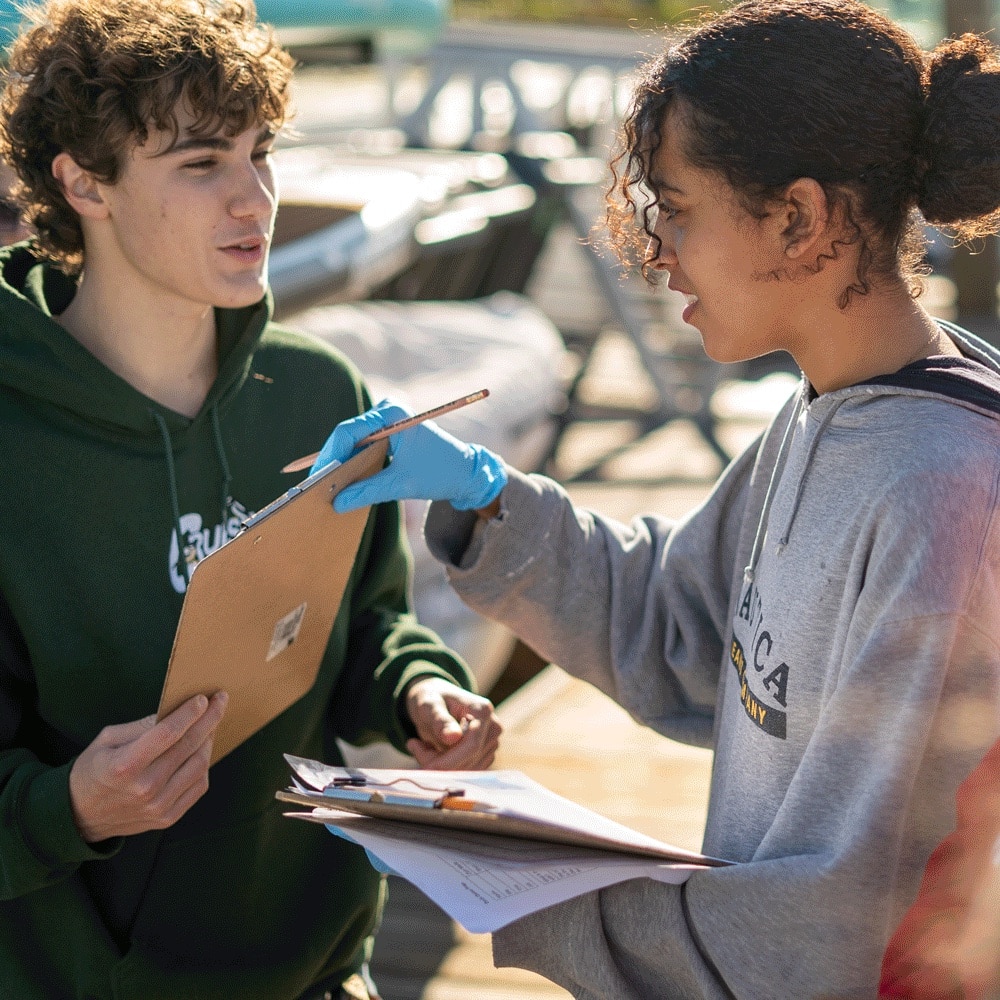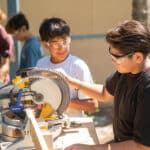
Dear High Tech High Families:
I am delighted to share insights into our innovative approach to education, which was recently referenced in an article by The Atlantic. At HTH, our commitment is to immerse students in authentic, project-based learning experiences that connect deeply with their lives and the broader world. This approach stands as a compelling alternative to traditional measures of academic success, bridging the gap between academics and real-world applications.

Every project at HTH integrates hands-on activities with intellectual inquiry across multiple disciplines, producing work that is meaningful, substantial, and often beautiful. These projects go beyond traditional classroom exercises, resonating with students’ interests and community needs through internships, fieldwork, and collaboration with experts. Our campuses are vibrant hubs of creativity, equipped to foster small-group learning and dynamic teamwork.
The work our students do is visible throughout our campuses, and displayed proudly. From intricate artwork to innovative prototypes, these pieces are not just assignments; they are artifacts of a thoughtful educational process. They tell a story of student engagement and high expectations met with determination and creativity.

This model of education does more than prepare students for tests; it prepares them for life. It builds their capacity to think critically, work collaboratively, and solve complex problems—skills that are crucial beyond the classroom walls. As The Atlantic notes, High Tech High’s approach offers a compelling alternative to traditional metrics of academic success, suggesting a path forward that values diverse talents and real-world skills.
Education scholars Jal Mehta and Sarah Fine, authors of In Search of Deeper Learning, found that even at America’s top high schools, traditional classrooms often left students disengaged. However, they observed passionate learning in extracurriculars and schools employing project-based learning (PBL). These schools focus on collaborative, real-world projects where teachers act as mentors, and students gain leadership, teamwork, and critical thinking skills. The approach emphasizes agency, purpose, and community, making learning more dynamic and meaningful.
Mehta and Fine highlighted a network of project-based charter schools, including High Tech High (HTH), which is featured in the documentary Most Likely to Succeed. At HTH, students work in teams on interdisciplinary projects, such as building museum exhibits or creating large-scale models to explain historical concepts. This hands-on learning fosters creativity, resilience, and a deeper understanding of subjects while allowing for occasional failures—a necessary component of innovation.
Notably, students in PBL programs often perform as well as or better than their peers on standardized tests, despite focusing less on test preparation. These schools show that holistic approaches to education can reignite curiosity and prepare students for real-world challenges, underscoring the need for greater investment in teacher training to expand such transformative methods.
I encourage you to view this brief video mention for an example of how project-based learning makes a difference. While High Tech High is not the sole focus, the mention underscores our role in redefining educational success.
Thank you for your continued support and belief in our mission. As we prepare our students for the challenges and opportunities ahead, we are grateful to be at the forefront of educational innovation, shaping the future of learning together. Happy holidays!
Best regards,
Diana Cornejo-Sanchez
Interim CEO
Tags: